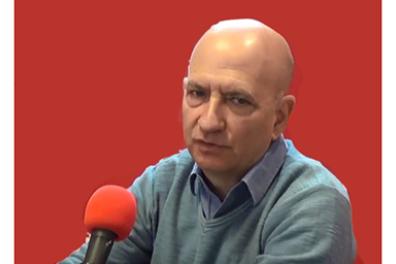Mission report after a research stay at Harvard

Harvard University (Boston, Massachusetts) invited me to participate in a semester of research (January-June 2018), as part of the Starr fellowship in Jewish Studies. Six researchers from American, Israeli and European universities were called upon to work on a common theme, "Jewish languages and literatures": Aramaic from the first centuries of the Christian era, Judeo-Arabic and Yiddish for the medieval and modern periods. My focus is on texts written in literary Italian (Tuscan) by Jews in the early modern period (16th-17th centuries).
Weekly group seminars were the privileged moments of encounter and exchange among the group's researchers, who were regularly joined by teachers from Harvard and other universities in the Boston area (M.I.T., University of Boston, Brandeis University, Boston College, etc.) as well as doctoral students. The working group was jointly coordinated by the Center for Jewish Studies and the Department of Comparative Literature at Harvard University.
The relatively long tenure at an American university naturally prompts reflections on the different ways of conceiving Hebrew and Jewish studies teaching on both sides of the Atlantic.
It is interesting to note that at Harvard - as at all major American universities - Jewish studies are not organized within a department, as at Inalco and other French institutions, but refer to different departments, according to respective disciplinary specializations: specialists in Jewish history work within the history department, Jewish philosophy is offered among the teachings of the philosophy department, courses in Hebrew law (Talmud and rabbinic law) are outsourced to the law school. The Center for Jewish Studies plays a coordinating role among these various courses, as well as providing information on the many guest lectures given by visiting professors.
Even at a Jewish-inspired university like Brandeis, Jewish studies are associated with Middle Eastern studies - mainly, but not exclusively, Arabic language and civilization - as there is a Department of Near Eastern and Judaic Studies.
The training of graduate students at Inalco and at an American university is therefore markedly different: an Inalco student will have a far more advanced command of modern Hebrew, both written and spoken, than his or her American colleagues; at Inalco, in fact, several courses (including civilization) are taught very early on - from the 2nd year of the bachelor's degree in some cases - in Hebrew; a modality unthinkable in the United States. The Inalco student will also have a more comprehensive knowledge of the various aspects and periods of Jewish civilization; by contrast, the American student will probably be able to place his specialized knowledge in the field of Jewish studies in a richer, more articulated context, and will possess a more mature methodology, thanks to his generalist training. Invaluable assets for embarking on research.
A number of courses at Inalco are designed to open up a wider range of cultural horizons, while maintaining a high degree of specialization. The Hebrew bachelor's degree with Arabic as a minor, or the double bachelor's degree in Arabic and Hebrew, for example, attempt to meet this requirement. As for Cermom (Centre d'études et de recherches sur le Moyen-Orient et la Méditerranée), one of its raisons d'être is precisely to promote and supervise cross-disciplinary research into Jewish, Arab, Turkish and Persian worlds and cultures.
.
In other words, we try to take the best sides of two pedagogical and scientific inspirations, specialization and openness, which can, and must, be complementary.
Alessandro Guetta